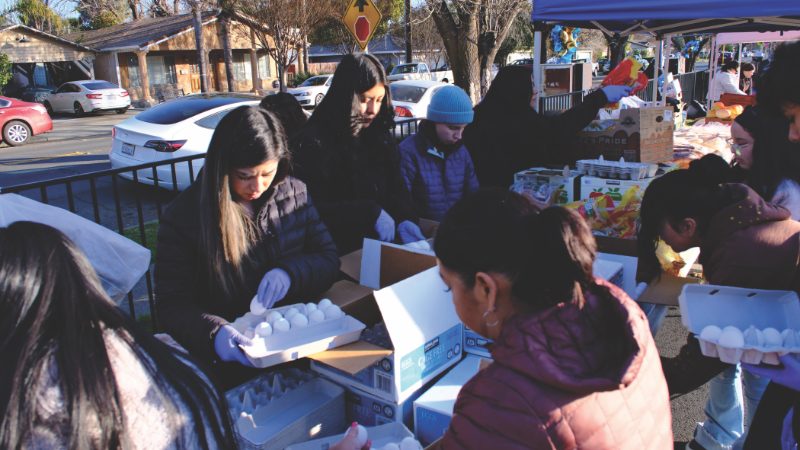Many factors can affect a woman’s risk of getting breast cancer. Here are eight questions your doctor may ask and what each question has to do with your breast cancer risk.
1. Have you ever had cancer?
If you’ve had cancer in one breast, you have a higher chance of getting cancer in the other or in a different part of the same breast.
Your risk might also be higher if you had chest radiation to treat another cancer, such as Hodgkin or non-Hodgkin’s lymphoma. On the other hand, if you’ve had chemotherapy, that may actually lower your risk of breast cancer.
2. Do you have a family history of breast cancer?
Having a mother, daughter, or sister with breast cancer almost doubles your own risk. Having two close relatives with breast cancer raises your risk even more.
Though breast cancer is more common in women, men also get it. Be sure to tell your doctor if your father or brother has been diagnosed.
Of course, you can get breast cancer without a family history. In fact, eight out of 10 women diagnosed with breast cancer don’t have a close relative with the disease.
3. Do you have a BRCA1 or BRCA2 mutation?
Up to 10 percent of all breast cancers may be inherited. This means they develop directly from gene mutations passed on from a parent. The most common cause of inherited breast cancer is a mutation in the BRCA1 or BRCA2 gene.
If you have a strong family history of breast cancer or ovarian cancer, your doctor may advise you to consider genetic testing for the BRCA1 and BRCA2 mutations.
4. How old are you?
The older you are, the higher your breast cancer risk. Most invasive breast cancers—those that have spread from where they started—are found in women 55 and older.
5. How old were you when you had your first period?
Starting your periods before age 12 may slightly add to your risk. This may be because you have a longer lifetime exposure to certain hormones that can spur the growth of breast cancer.
6. If you’ve given birth, how old were you when your first child was born?
If you haven’t given birth or you had your first child after age 30, you may have a slightly higher risk of breast cancer. But pregnancy can also raise the risk of one kind of breast cancer.
Some older forms of birth control may also affect your risk. So be sure to tell your doctor about your full reproductive history.
7. Have you ever had a breast biopsy?
Even when a biopsy doesn’t find cancer, some of the breast changes that led to the biopsy may raise your cancer risk. But biopsies themselves don’t cause cancer.
8. What’s your race and ethnicity?
Generally, white women are slightly more likely to be diagnosed with breast cancer than women of other ethnicities. Under age 45, breast cancer is more common in African American women. Overall, African American women are more likely to die from the disease than white women.
Keeping breast cancer at bay
Regardless of your risks, getting your mammograms on schedule can help you find breast cancer early, when it is most treatable.
Despite these known risks, your risk is unique. Stay informed about breast cancer facts and talk with your doctor anytime you’re concerned.
____________________
By Kim Strobel
¿Cuál es el riesgo del cáncer de mama?
Muchos factores pueden afectar el riesgo de una mujer a padecer cáncer de mama. A continuación, presentamos ocho preguntas que tu médico puede hacer y qué tiene que ver cada una de ellas con el riesgo de cáncer de mama.
¿Alguna vez has tenido cáncer?
Si has tenido cáncer en una mama, tienes una mayor probabilidad de tener cáncer en la otra o en una parte diferente de la misma mama.
El riesgo también podría ser mayor si recibiste radiación en el pecho para tratar otro cáncer, como el de Hodgkin o el linfoma que no es Hodgkin. Por otro lado, si has recibido quimioterapia, eso puede reducir tu riesgo de cáncer de mama.
¿Tienes antecedentes familiares de cáncer de mama?
Tener una madre, hija o hermana con cáncer de mama casi duplica tu propio riesgo. Tener dos parientes cercanos con cáncer de mama aumenta aún más el riesgo.
Aunque el cáncer de mama es más común en las mujeres, los hombres también lo padecen. Asegúrese de informar a su médico si su padre o hermano han sido diagnosticados positivamente.
Por supuesto, se puede contraer cáncer de mama sin antecedentes familiares. De hecho, ocho de cada 10 mujeres diagnosticadas con cáncer de mama no tienen un pariente cercano con la enfermedad.
¿Tiene una mutación BRCA1 o BRCA2?
Hasta el 10 por ciento de todos los cánceres de mama pueden ser hereditarios. Eso significa que se desarrollan directamente a partir de mutaciones genéticas transmitidas de uno de los padres. La causa más común del cáncer de mama hereditario es una mutación en el gen BRCA1 o BRCA2.
Si tienes antecedentes familiares importantes de cáncer de mama o cáncer de ovario, tu médico puede aconsejarte que consideres la posibilidad de hacerte pruebas genéticas para detectar las mutaciones BRCA1 y BRCA2.
¿Cuántos años tienes?
Cuanto mayor seas, mayor será tu riesgo de cáncer de mama. La mayoría de los cánceres de mama invasivos, aquellos que se han propagado desde el lugar donde se originaron, se encuentran en mujeres de 55 años o más.
¿Qué edad tenías cuando tuviste tu primera menstruación?
Comenzar a menstruar antes de los 12 años puede aumentar ligeramente el riesgo. Eso puede deberse a que tienes una exposición más prolongada a ciertas hormonas que pueden estimular el crecimiento del cáncer de mama.
Si has dado a luz, ¿qué edad tenías cuando nació tu primer hijo?
Si no has dado a luz o tuviste tu primer hijo después de los 30 años, es posible que tengas un riesgo ligeramente mayor de cáncer de mama. Pero el embarazo también puede aumentar el riesgo de un tipo de cáncer de mama.
Algunos métodos anticonceptivos más antiguos también pueden afectar el riesgo. Por lo tanto, asegúrate de informar a tu médico sobre tu historial reproductiva.
¿Alguna vez te has hecho una biopsia de mama?
Incluso cuando una biopsia no encuentra cáncer, algunos de los cambios en la mama que llevaron a la biopsia pueden aumentar el riesgo de cáncer. Pero las biopsias en sí mismas no causan cáncer.
¿Cuál es tu raza y etnia?
En general, las mujeres blancas tienen un poco más de probabilidades de ser diagnosticadas con cáncer de mama que las mujeres de otras etnias. Antes de los 45 años, el cáncer de mama es más común en las mujeres afroamericanas. En general, las mujeres afroamericanas tienen más probabilidades de morir a causa de la enfermedad que las mujeres blancas.
Mantener a raya el cáncer de mama
Independientemente de tus riesgos, hacerte las mamografías a tiempo puede ayudarte a detectar el cáncer de mama temprano, cuando es más tratable.
A pesar de esos riesgos conocidos, tu riesgo es singular. Mantente informada sobre los hechos acerca del cáncer de mama y habla con tu médico en cualquier momento que estés preocupada.
____________________
Por Kim Strobel






